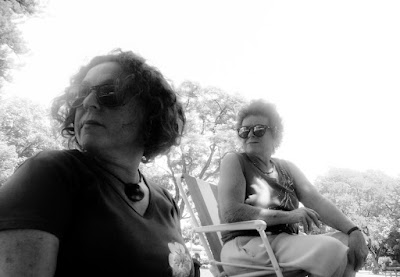To work or to workshop?
| Pressfield: "The Muse always delivers" |
Instead of flying to Fiji I spent the day working on a story 'The Caretaker'. I took the first half of this story to my writers group and they wanted to read more. That got me excited. (Golden Rule - Keep Them Reading). So I keep plugging away at 'The Caretaker' and it continues to grow. Definitely one that will end up in the collection, Satisfied.
In the meantime, I miraculously finished a first draft of a new story, 'Crocodile' over 2days. I'm not exaggerating when I say miraculously - I've never worked that quickly before. I put it down to continuously turning up to the blank page and gluing my bum to the seat until it was done. I plan to enter 'Crocodile' in the Australia's Scarlet Stiletto Short Story Awards. Another first in that I don't write crime stories, but this one has a crime in it. Awesome. Fun to write, too.
What does this have to do with workshops? When I found out the retreat was cancelled I immediately booked myself into a workshop over 2 weekends with author Lisa L Hannett. If I hadn't been going to Fiji I wanted to attend Hannett's workshop anyway. I like to do a workshop a year with a well established writer - for me it's a way to:
- pick up one or two hints about writing (that's the most that really sticks in my brain) and
- get inspired.
"Have you ever been to a workshop? These boondoggles are colleges of Resistance ... What better way of avoiding work than going to a workshop? But what I hate even worse is the word support... the more energy we spend stoking up on support from colleagues and loved ones, the weaker we become and the less capable of handling our business." (pg 51)
I tend to agree with him. However, for the two reasons mentioned above they can be very valuable, especially if you're a novice writer. Also, Hannett's workshop will cover book marketing and publishing. There's a lot of information on line about these subjects but if you're like me and enjoy a human contact, then why not fork out the $90 and get 6 hours of advice and feedback? Workshops can also be great for:
- networking - with the tutor and with other writers.
- waking you up to exactly how much work you have to do (lots, I find).
"The professional trusts the mystery. The professional knows that the Muse always delivers. She may surprise us. She may give us something we never expected. But she will always put something in the box." (pg117)
Pressfield is right: workshops are no substitute for sitting down and doing the work. If all you're doing is workshops and no writing, then you're wasting your time and money, not to mention spinning yourself some serious bullshit.
What's your view of workshops, I'd like to know.
Caroline


Comments